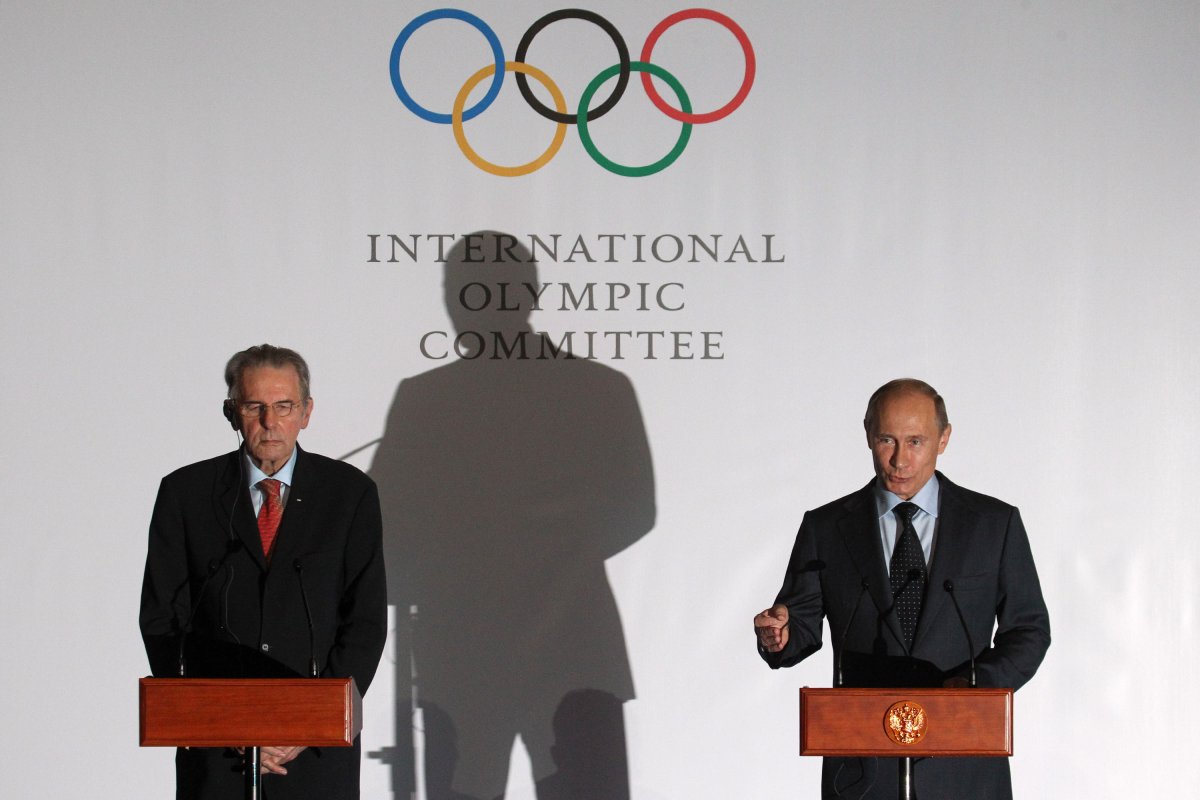Some gay rights activists are calling for a boycott of the 2014 Winter Games. But doing so would only harm the athletes, said Mark Tewksbury, one of Canada’s most prominent gay Olympians.

“I don’t believe in boycotts,” he said in an interview Tuesday. “The athletes would pay the price, not the host country. I think the best thing is to be present and continue to live your life.”
Calls for countries to avoid February’s Games in Sochi, Russia were sparked after the country passed a series of patently anti-gay laws within the last month.
READ MORE: Could gay Canadians – and their supporters – be arrested at Sochi?
The most recent piece of legislation, which Russian President Vladimir Putin signed earlier this month, forbids gay couples and single or unmarried citizens of countries that recognize same-sex marriage from adopting a Russian-born child.
Days earlier, Putin approved a law bestowing powers on Russian police to fine, detain for up to 14 days and expel tourists and foreign nationals suspected of being gay or disseminating pro-gay “propaganda.”
READ MORE: Dozens arrested at gay pride rally in Russia
In six months, Russia will open its arms to a host of countries that actively advance equal rights, including some top medal winners – Canada, The United States, Norway and Austria, to name a few.
And without any plans for a boycott, Canada will be there, with its delegation of more than 400 athletes, coaches, staff and volunteers in full form.
“The Canadian Olympic Committee’s position is clear that playing sports is a human right,” said Dimitri Soudas, the organization’s executive director of communications. “Every individual should have the opportunity to play sports without discrimination.”
He stressed that the COC unequivocally stands behind each of its athletes.
Tewksbury came out in 1998 after winning gold, silver and bronze medals for swimming in the 1988 and 1992 Summer Games. He went on to become an active advocate for gay rights in Canada and around the world, and later was named Canada’s Chef de Mission for the 2012 Olympic team in London.
While the approaching Olympiad has highlighted the state of affairs for homosexuals in Russia, that country is not alone, Tewksbury noted.
“Sadly, there are still many countries in the world where you can be arrested or even executed simply for being gay,” he told Global News on Tuesday while in North Carolina. “The Olympics coming to Sochi has raised the awareness level of this horrible reality.”
In a recent press release, the International Olympic Committee said the “highest level of government in Russia” has assured the new law will not affect anyone either attending or participating in the Games.
When asked whether going to Russia could be seen as condoning the anti-gay laws, Soudas said Canada’s Olympic committee doesn’t comment on national legislation.
“We believe in each individual’s right to freedom of expression,” he said. “Playing sports is a human right regardless of race, gender or sexual orientation. And our number one priority right now is making sure our team is ready to compete – and win.”
Before the Canadian delegation heads off to Sochi, however, the Opposition is hoping the Conservatives come down hard on Russia for its recent moves against gay rights.
A spokesman for Foreign Affairs Minister John Baird has characterized the developments as “extremely troubling,” and said Canada has raised its concerns directly with Russian authorities.
But that’s not enough, said New Democrat foreign affairs critic Paul Dewar.
At the same time, Dewar isn’t certain withdrawing from the Games is the right way to go.
“There are many athletes saying the last thing they want to do is retreat from Sochi,” he said. “This is a time when you want to speak up. Maybe we’ll see that from athletes. … I could see athletes bringing out rainbow flags. And who knows? Maybe we should be flying that with our Canadian flag.”





Comments